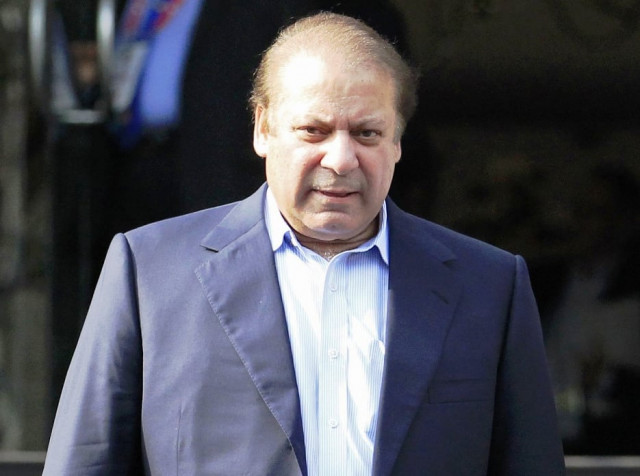SC verdict against PM’s discretionary fund challenged
Govt files review petition in SC against its Dec 5, 2013 judgment requesting plea be allowed in interest of justice.

Prime Minister Nawaz Sharif. PHOTO: REUTERS
Through the finance secretary, the government filed a review petition in the top court this week against its December 5, 2013 judgment, requesting that its plea be allowed in the interest of justice.
The petition requests that the court enable the government to continue to work on the basis of a system of fiscal management that has been practiced since the creation of Pakistan and argues that it is not only consistent with constitutional provisions but that it has proven its utility and worth.
Additional Attorney General Shah Khawar has drafted the review petition. It is learnt that the government will also submit another application tomorrow (Monday) for the early hearing of the review petition.
Former chief justice Iftikhar Muhammad Chaudhry had authored the 38-page judgment in the suo motu case regarding the doling out of billions of rupees in the form of development funds by former prime minister Raja Pervaiz Ashraf during the last 10 days of his tenure.
The government expressed apprehensions in the review petition that if the top court judgment is implemented then it would cause serious governance problems.
The review petition questioned whether the court misinterprets Article 84 read with Article 90 of the Constitution to hold that the prime minister cannot authorise expenditure on account of supplementary grants from the Federal Consolidated Fund.
The government also contended that though no provisions are made explicitly mandating the use or allocation of elected representatives and notables, some development schemes identified and recommended by the parliamentarians are funded through the budget after completing all procedural and financial formalities by the competent authority.
“The prime minister is the chief executive of the federation and the chief minister is the chief executive of the province. As such, the federal government and provincial governments act through respectively their prime ministers and chief ministers,” it read.
Raising objections over paragraph 32 of the judgment, the petition contended that the federal government acts through the prime minister and the actions of the prime minister in performance of functions under the Constitution shall be considered as actions of the federal government.
“Even the rules of business 1973 of the federal government empower the PM to dispose of matters of business as he may consider appropriate without reference to the cabinet. The prime minister is also empowered to permit relaxation of the rules of business he considers appropriate,” it said.
Objecting to paragraph 39 of the judgment, in which prior approval of the National Assembly will be required before the supplementary expenditure, the government submitted that there is no requirement in Article 84 that the supplementary or excess budget statement be placed before the NA in the same or next financial year.
Raising questions over para 52 (4) of the judgment, the government submitted that the constitution does not provide any specific provision to regulate the re-appropriation of funds and that this part of the judgment is liable to be reviewed.
“Budgetary allocations for the next fiscal year are prepared largely on the basis of previous expenditure trends and are only estimates,” it further said.
“Therefore, it is almost impossible to forecast needs/exact requirements of funds under numerous heads of accounts for the forthcoming financial year. Therefore, funds are re-appropriated within the same demand of ministries/divisions/ departments organisations in order to meet shortfall under certain heads from the savings from other heads of same demand with the approval of principal accounting officers and finance division for the efficient and effective functioning of the government,” it added.
Published in The Express Tribune, February 9th, 2014.


















COMMENTS
Comments are moderated and generally will be posted if they are on-topic and not abusive.
For more information, please see our Comments FAQ